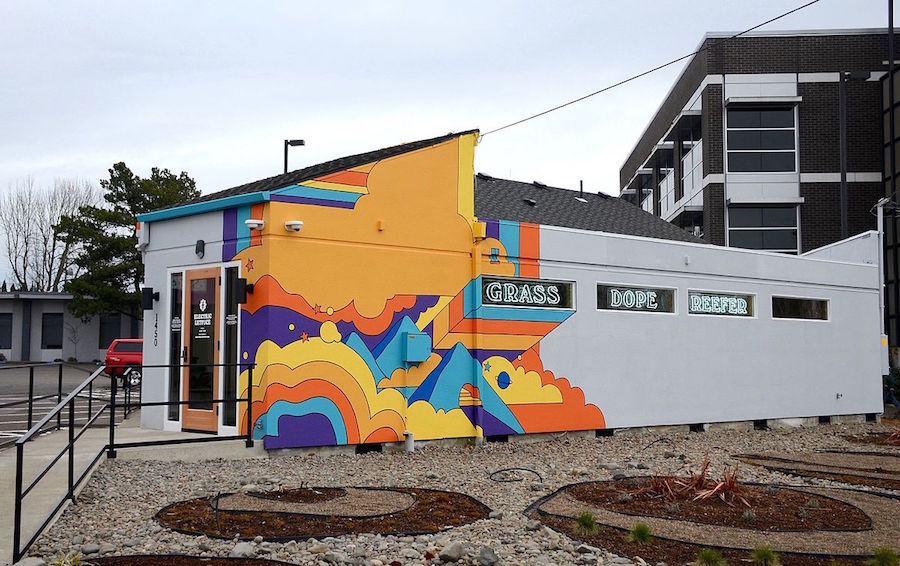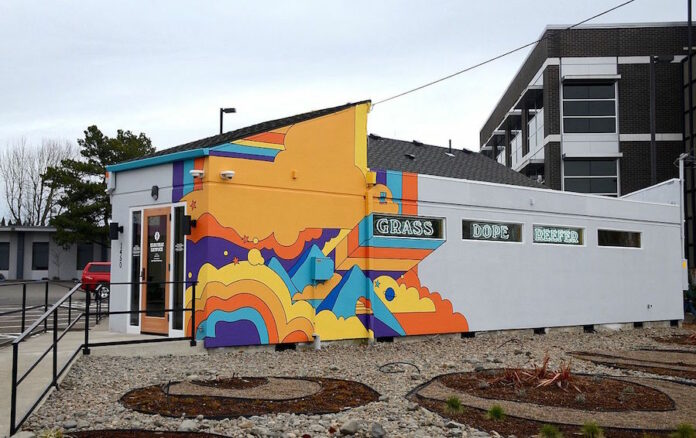
 Undocumented immigrants at greatest risk of federal enforcement of marijuana policy
Undocumented immigrants at greatest risk of federal enforcement of marijuana policy
Today marks the first 4/20 Californians of age will celebrate entirely legally. It’s been a long time coming for the state that was first to approve the medical use of marijuana in 1996 — and it’s surely only the start of what will be a national march toward the end of a modern prohibition. But there’s one big roadblock facing tokers everywhere: the Trump-era Department of Justice.
Helmed by Attorney General Jeff Sessions, a former Alabama senator and early Trump supporter, the Justice Department will likely have an outsized role in determining how the federal laws that still classify marijuana as a Schedule I Drug as dangerous as cocaine and heroin are enforced.
Even though Sessions has recently indicated to U.S. senators in private that he will not crack down on marijuana, he has ordered a review of Obama-era marijuana enforcement policy and is known for his long-held and staunch opposition to a drug that he has said “good people don’t smoke.”
There are other troubling signs. Sessions appointed Steven H. Cook, a federal prosecutor and hard-line enemy of criminal-justice reform, to help roll back key provisions of the Obama Justice Department. That could include reimplementing the failed tactics of the War on Drugs.
The evidence that the Justice Department is gearing up to clamp down on pot raises an obvious question: Why?
A Quinnipiac University poll found in February that 59 percent of Americans are in favor of legalizing marijuana, and 71 percent say the federal government should not interfere in states that have chosen to permit recreational or medicinal use of the drug.
As it happens, enforcing federal marijuana laws may have the added benefit to Sessions’ Justice Department of fulfilling a key Trump promise: cracking down on illegal immigration.
Because immigration to the United States is considered a federal issue, the possession or use of marijuana by undocumented immigrants can, in some cases, be grounds for deportation. Sessions has responded to sanctuary cities like Davis that have promised not to turn over undocumented immigrants to federal authorities by threatening to withhold critical grant money.
In such an environment, it seems eminently possible that a rehashed War on Drugs could be an excuse for Trump to target unauthorized immigrants, even here in California. At UC Davis, where the number of undocumented students totaled about 200 when the AB540 Undocumented Center opened in 2014, that poses a potential danger to the campus community. As college students increasingly choose to smoke marijuana, they should be informed as to how the use, sale or possession of pot can adversely affect them or their colleagues.
While the harm that Sessions could create by going after pot is huge, there’s still a lot of uncertainty as to how the administration will actually act. In marijuana we see another example of Trump’s lack of leadership creating rifts within his own administration. Contradicting Sessions and Cook last week was Department of Homeland Security Secretary John Kelly, who said “Marijuana is not a factor in the drug war.”
So what’s the bottom line? Does all this confusion precede the end of weed? Not quite.
It’s possible that the slow way recreational marijuana has been adopted in the United States has created a situation that makes it more difficult for a knee-jerk reaction from the Justice Department. This is especially true for medicinal marijuana — which has been rolled out over the United States for over 20 years — and is now being put under serious consideration in deep-red states like West Virginia, where it was approved by a Republican legislature earlier this month.
All this is to say: Don’t panic yet, man. Even though ambiguity over the Trump administration’s position on weed has caused states like Colorado to reevaluate how they regulate the drug, it’s unlikely that pot’s acceptance among a growing share of Americans will suddenly go up in smoke.
Of the eight states that have legalized recreational marijuana, all have done so through ballot referendums rather than through state legislatures. It’s an indication of how perceptions of weed have changed from the ground up, and for the better. That should give some hope to users on this 4/20 that Trump and Sessions may not get their hellish return to draconian drug policy.
Written by: Eli Flesch — ekflesch@ucdavis.edu
Disclaimer: The views and opinions expressed by individual columnists belong to the columnists alone and do not necessarily indicate the views and opinions held by The California Aggie.





